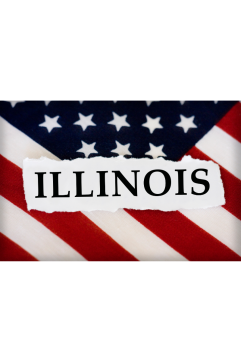No one ever wants to be in debt, but it happens–especially if you don’t have Illinois credit services like The Phenix Group helping you stay on top of your finances. Soon enough, debt collection agencies will be on your tail. And while you may feel helpless once you get calls from these collectors, you must remember that you have rights that protect you from being subject to unfair, abusive, or fraudulent practices just to get you to pay your bills.
Both the Fair Debt Collection Practices Act (FDCPA) and the Illinois Collection Agency Act (ICAA) regulate debt collection in Illinois and keep consumers like you from being treated unjustly during debt collection.
The Fair Debt Collection Practices Act
The FDCPA is a federal law that protects people from unreasonable, deceptive, and derogatory debt collection practices. They outline what debt collectors can and can’t do to collect debts. For example, the law prohibits debt collectors from calling you at your place of employment, disclosing your debt information to a third party, or communicating with you using profane language–the latter being one of the most common violations of the FDCPA.
While the FDCPA is comprehensive, it does have its shortcomings. For instance, it only concerns debt collectors and some third-party debt buyers. It doesn’t cover original creditors or the company that gave you the loan or credit in the first place.
The Illinois Collection Agency Act
The ICAA supplements the FDCPA with additional regulations that protect those with debts in collection. In particular, it includes a requirement for debt collectors to be licensed before being able to collect a debt.
Like the FDCPA, the ICAA lists practices that debt collectors are prohibited to engage in during debt collection. It also gives consumers the right to check the validity of any debt being collected and outlines what a debt collector must do if someone challenges the validity of a debt.
Debt Collectors in Illinois
The ICAA applies to Illinois companies in the business of collecting debts. However, if the business is “confined” to something other than that, then it doesn’t have to comply with the law. The ICAA also doesn’t cover original creditors (including banks and similar financial institutions like credit unions or loan companies), as well as attorneys, real estate brokers, retail stores, unit owner’s associations, and billing companies that only send account notices.
Illinois-based debt collectors are required to get a license. If they fail to do so, the state can fine them up to $10,000 for each violation. If a debt collector from outside of the state tries to contact you, they don’t need a license as long as they have one in the state from which they’re reaching out to you.
Prohibited Debt Collection Practices in Illinois
Under the ICAA, debt collectors are prohibited from doing the following:
- Using or threatening to use force or violence
- Threatening to sue, instigate an arrest, or file for criminal prosecution with no legal basis
- Threatening the seizure, attachment, or sale of your property
- Disclosing or threatening to disclose information that could ruin your reputation for creditworthiness knowing the information is false
- Excessively communicating with you or any member of your family or contacting you outside the reasonable hours of 8:00 AM and 9:00 PM
- Using profane, obscene, or abusive language when communicating with you
- Disclosing or threatening to disclose information about your debt to a third party
- Disclosing or threatening to disclose information about a debt that’s has been disputed by you
- Engaging in any activity that’s intended to cause mental or physical illness
- Impersonating a police officer, government agency representative, or legal representative
- Misrepresenting the amount of debt owed or representing that it may be increased with other charges
If you believe that a debt collector has violated the ICAA, you can file a complaint against them to the state of Illinois or the Consumer Financial Protection Bureau (CFPB). You can also file a lawsuit, either under the FDCPA or the ICAA.
Final Thoughts
Just because you have a debt due doesn’t mean that debt collectors can subject you to unfair, abusive, or deceptive behavior. Illinois debt collection laws afford you rights to protect you from mistreatment and to ensure that debt collectors are in line when demanding payment. Keep these in mind so that you know how to deal with the next phone call that comes along.
If you have a legitimate debt, it’s crucial to settle these as soon as possible, or else you’ll see a dip in your credit score. Once you’re done, seek help from a credit repair company like The Phenix Group to get you back in good financial standing. Get a free consultation today to learn how!

